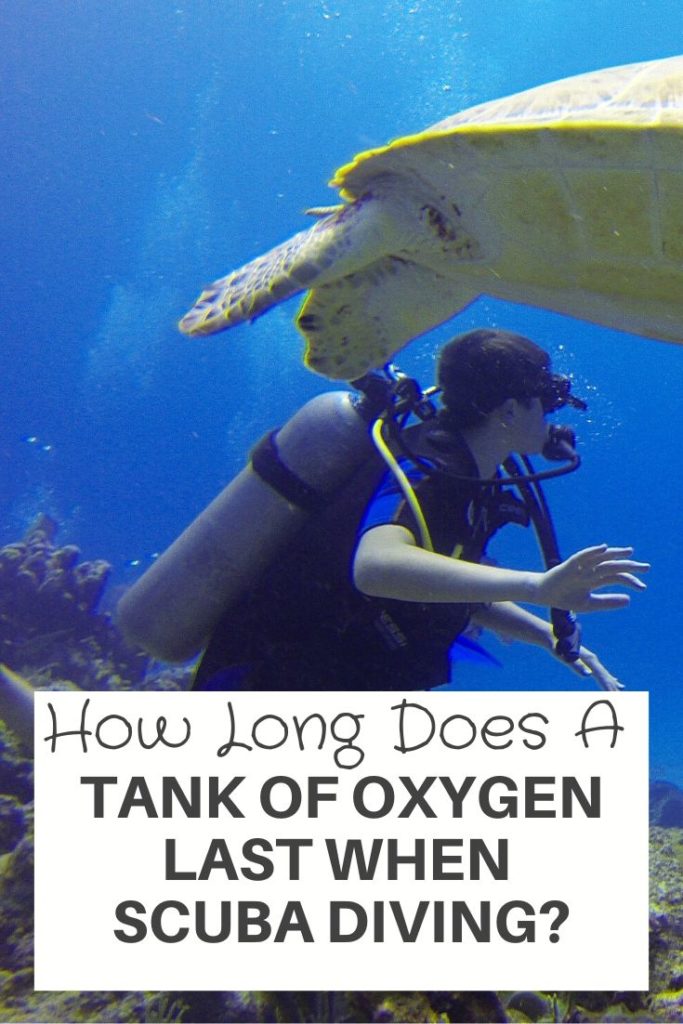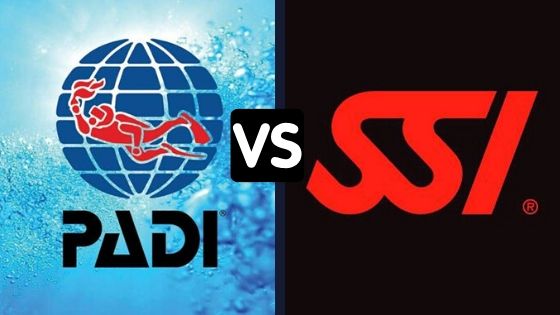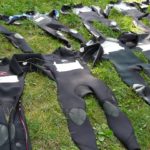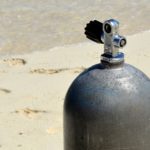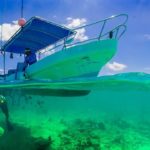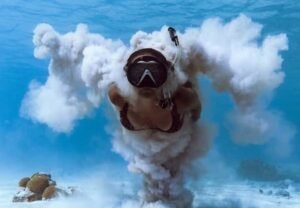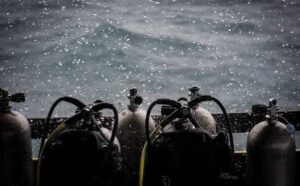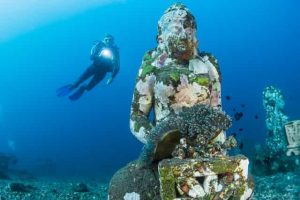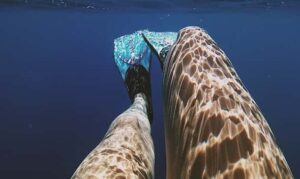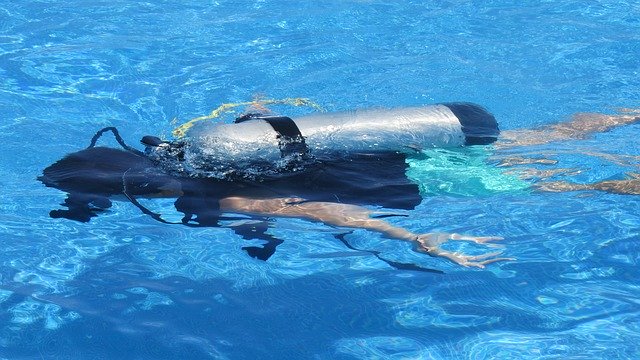
The question of how long does a tank of oxygen lasts when scuba diving is a common question when going scuba diving. The overly simple answer is about an hour. However, it’s more complicated than that. It depends on the following several factors.
The factors that can affect how long the tanks air will last ranges from the size of the cylinder to the depth of the dive. There is also the rate of air consumption so the harder you work when diving the more air you will use.
In this post, we will go through how long does a tank of oxygen last when scuba diving. Let’s get started!
Read more on common questions asked by beginner divers
How Long Does A Tank Of Oxygen Last When Scuba Diving?
There are 2 main considerations when trying to figure out how long the air will last in a scuba tank. These are as follows.
Size Of The Cylinder
There are different sizes of the cylinder. The size that you pick can affect how long the tank will last in a certain depth and air consumption.
The most common size you will use is the standard 12L, 200-bar scuba tanks.
The Amount Of Air In A Tank
Generally speaking, average tanks are usually filled to 220 to 300 bars. The amount of air in a tank usually is multiplied by the volume of the tank by the pressure.
The most common tank sizes are including 10, 12, 15, and 18 liters.
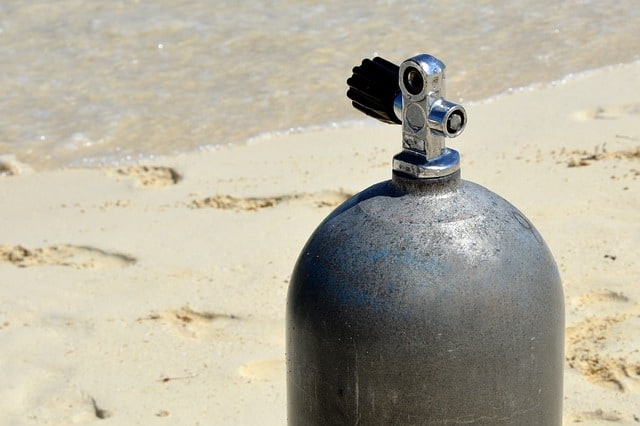
Three Factors Which Determine How Long a Diver’s Air Can Last
There are a number of factors to consider that can my a dive last longer. This can range from the depth of the dive to the rate of breathing by the diver. They are as follows.
Tank Volume
One of the most familiar tanks among recreational divers is the aluminum 80. It can hold 80 cubic feet of air compressed to 3000 PSI (pounds-per-square-inch). But, scuba tanks have various sizes and materials for different applications.
Those divers that want to be in very long or deep dives usually choose tanks with a bigger internal volume. Small divers that use very little air usually pick smaller tanks for their comfort. So, a tank that holds a bigger volume of air can last longer underwater.
Depth
On land, we breathe air pressured at roughly 1 bar. So, for every 10 meters, you go down the pressure surrounding you will increase by about 1 bar.
To breathe comfortably the scuba regulators provide you with the same pressure as the pressure surrounding you. Meaning that if you are at 20 meters you will breathe air at 3 bar. The deeper you dive, you will use more air.
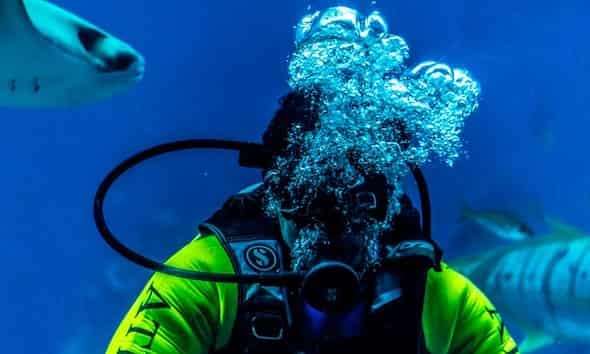
Rate Of Air Consumption
The air consumption rate of a diver will show how long the air in his tank will last compared to the average divers. If a diver is swimming against a strong current or the diver has poor buoyancy will lead to a faster rate of air consumption as they are working harder.
Meanwhile, a diver with a big volume of the lung (big or tall people) will need more air than a short or petite person with a tinnier lung volume and usually will have a higher rate of air consumption.
How Long Does A Scuba Tank Last?
So, how long does a scuba tank last? For a beginning diver, at 10m depth, the average air consumption in calm waters runs a tank close to empty is about 1 hour (in contrast to just a couple of minutes at 40 mins).
The experienced or professional divers can double the time easily through motion economy or buoyancy or breathing control.
How Long Does Air Stay Good In A Scuba Tank?
Scuba tanks that are filled and ready to go can be stored for up to 1 year with the air in the tank will still be good. This depends on a range of factors like cylinder maintenance and storage conditions.
It is advised not to store scuba tanks full of air for no longer than 3 months. This improves the cylinder life span as the higher the tank pressure, the greater the chance of corrosion forming inside the cylinder.
Read more on scuba cylinder maintenance here.
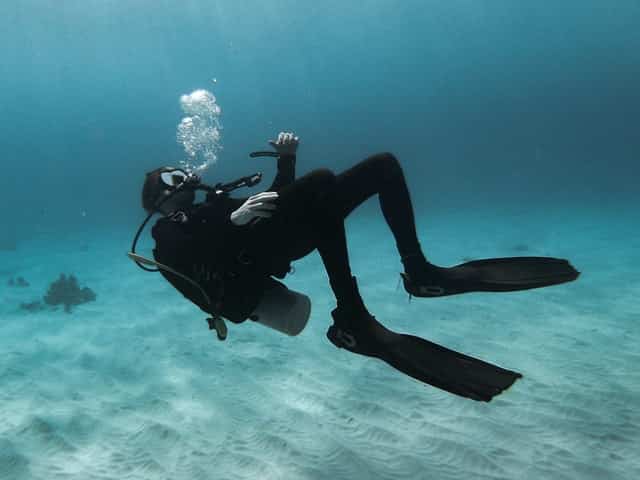
Factors To Consider
There are a number of factors to consider to protect the scuba tanks and where to store the scuba cylinders that ensure that the air in the tanks remains good.
- Visual inspection – The tanks should have a visual inspection at minimum at least once a year. Really it should be done every 3 to 6 months especially if they are in regular use.
- Hydrostatically test – This at least once every five years. A hydrostatic test checks the cylinder strength and leaks. In other words validates that it is in good working order.
- After use – After the dive, the Scuba tanks need to be thoroughly rinsed with fresh water.
- Storage – The tanks need to be stored with positive pressure inside the tank not necessarily full of air. This prevents moisture from developing inside the tank. They need to be kept at room temperature.
- Horizontal position – Scuba cylinders need to be kept upright in words in a horizontal position where they can not fall, roll, or be damaged in some other way.
- Careful handling – Be careful when handling the scuba tanks as been careless may and will cause dents and gouges on and in the tank. This over time will reduce the life span of the cylinder and can cause corrosion of the metal and can also weaken the cylinder.
- Tank valve smells – If you smell or hear anything rattling inside the tank this may indicate there may be some contamination or damage. You may need to get the tank cylinder tested.
Wrapping Up
Finally, there are some factors such as tank volume, depth, and rate of air consumption to consider to answer the question accurately. Even though usually it should last up to 1 hour, but to predict the exact time, it would require an understanding of the air consumption rates, tank volumes, and water pressure.
The diver’s physique can also affect how long the air in the tank can last.
And that’s it for now! I’d love to know if this guide on how long does a tank of oxygen last when scuba diving has helped you. Let me know if you have any questions and let me know if there is more to add.
Did you enjoy this post? Then don’t forget to pin it!
